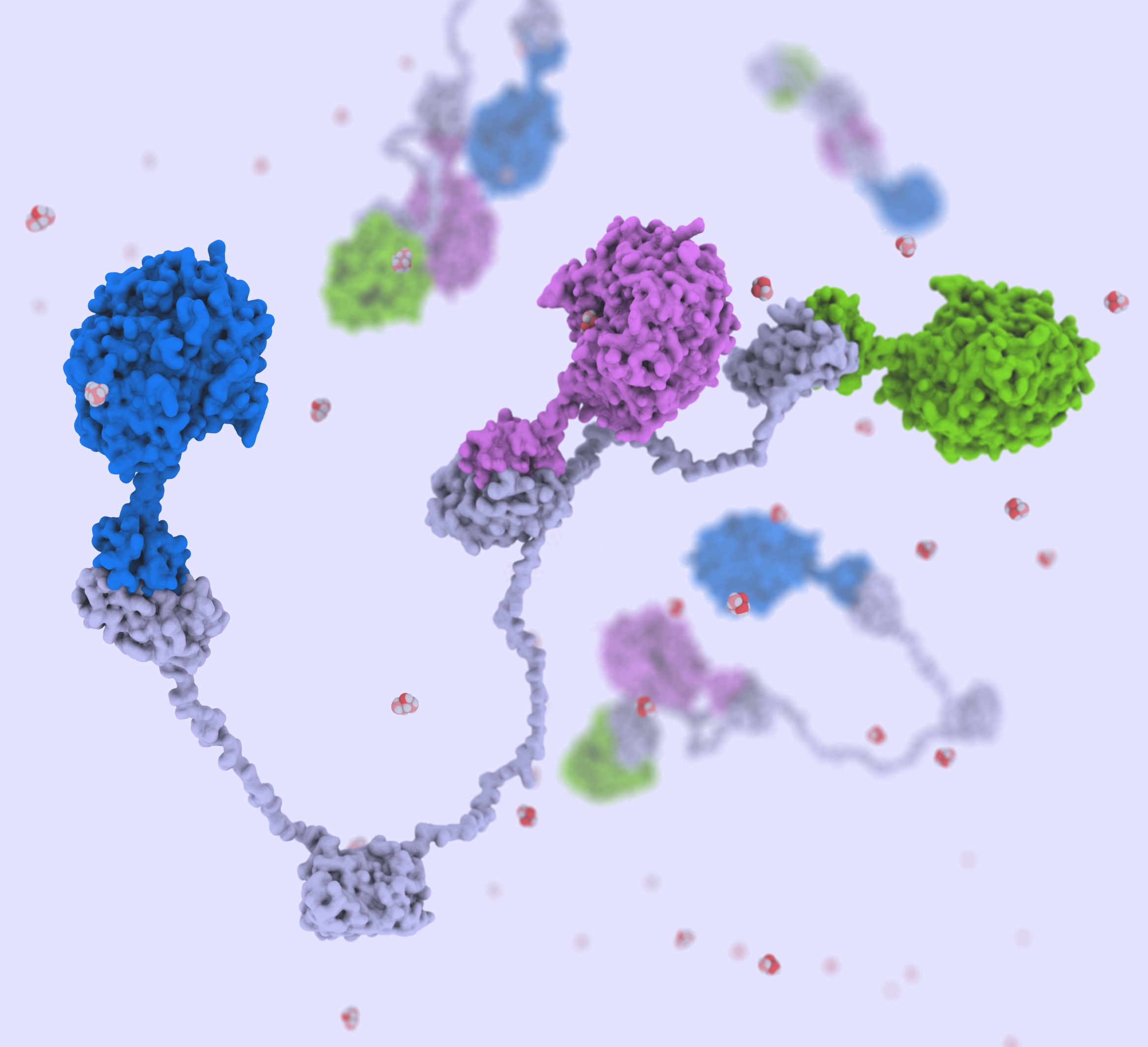
Changing What's Possible for the New Carbon Economy
by Dr. David Babson
We live in a carbon-based economy. From the fuels that power our trains, planes, and automobiles to the materials used in our earbuds and iPhone cases, carbon is a critical backbone of our modern economy. Despite our need to actively mitigate and remove carbon and other greenhouse gases (GHGs) from our atmosphere, our future economy will not be a low-carbon economy that emphasizes incremental GHG reductions as much as it will be a new carbon economy: one that removes, efficiently uses, and sequesters more carbon than it emits. Enabling this economy requires new innovations and advanced technologies aimed at fundamentally changing how carbon can be manipulated and managed. ARPA-E is pursuing a number of programs focused on redefining the relationships between energy and carbon, and the ECOSynBio (Energy and Carbon Optimized Synthesis for the Bioeconomy) program will pioneer a new paradigm for biosynthesis that prioritizes carbon and natural resource efficiency during the production of renewable carbon-based fuels, chemicals, and products. This program will invest in the engineering of novel biosynthesis and bioconversion pathways that leverage clean renewable energy to increase product yields and enable new energy systems that better promote optimal carbon and resource management throughout our economy.
Sustainably growing and improving the bioeconomy is one way to help realize the new carbon economy
The sustainable use of renewable biomass (aquatic and terrestrial) for energy, intermediate, and final products – i.e. the bioeconomy – is vital to the new carbon economy. The bioeconomy supply chain extends from forest managers and farmers through the biotech and refining sectors and into the unique and novel fuel, chemical, and products markets that serve the economy. Each stage in the supply chain offers a unique opportunity for carbon capture, management, or conversion; however, each stage comes with its own set of technical challenges.
ARPA-E is strategically tackling critical challenges up and down the bioeconomy supply chain
Existing ARPA-E programs that target the bioeconomy include advanced technology development to select for carbon-efficient crops (TERRA) and carbon-sequestering root systems (ROOTS), and field-level carbon accounting tools for commercial agriculture to track the carbon attributes and sustainability of bioeconomy feedstock production (SMARTFARM). ECOSynBio shifts the focus downstream in the bioeconomy supply chain to target critical advances needed to optimize the bioconversion of feedstock to fuels, chemicals, products, and materials. Successful projects in the ECOSynBio portfolio will compound the carbon benefits of upstream program outcomes by offering more efficient pathways from feedstock to product.
Booming renewable power can be leveraged to decarbonize fuel and chemical synthesis – ECOSynBio seeks biotechnologies to exploit this opportunity
Ethanol biofuel, along with a growing number of other biomass- and plant-based products, are almost exclusively produced via fermentation, the age-old technology that also produces wine, beer, and cheese. Most microorganisms currently involved in commercial fermentation spent millions of years adapting to environments that were energy-limited, but carbon-abundant. Thus, today’s microbial strains have evolved metabolic pathways that prioritize energy efficiency over carbon utility. This means that current metabolic bioconversion pathways, upon which the current bioeconomy is built, are fundamentally ill-adapted for a bioeconomy in which renewable energy is cheap and abundant, but carbon must be conserved because the cost of wasting it is high.
Indeed, in recent years, the rate of renewable wind and solar power deployment has grown exponentially[1], driving down both the cost and carbon intensity of U.S. power[2]. ECOSynBio aims to establish new paradigms and develop critical new tools to leverage this inexpensive and low-carbon power to substantially improve the carbon benefits of the bioeconomy. Specifically, this program intends to fund early stage, high risk research to enable the uptake of external energy in the form of reducing equivalents into industrially relevant microbial production strains, engineered bioprocesses, or cell-free biocatalytic synthesis platforms to eliminate or reverse the generation of CO2 as a bioconversion byproduct.
ECOSynBio will enable new technologies that enhance the economic and environmental benefits of the bioeconomy
ECOSynBio is the program that connects advanced feedstock production to the synthesis of desirable bio-products by leveraging available new sources of renewable power to maximize resource efficiency. Success for ECOSynBio will mean more opportunities for the future bioeconomy to take advantage of the rapid deployment of inexpensive low-carbon power to spare agricultural land, optimize natural resource utilization, manage carbon, and improve profitability in a future where the cost of wasting carbon is greater than the price of avoiding it.
Realizing the new carbon economy will allow the economy itself to become a tool for carbon management that will not only improve how renewable products are produced, but will create opportunities for entirely new industries in the future. With its vast agricultural lands, renewable resources, and domestic manufacturing capacity, the U.S. is well-equipped to become a leader in this economic future.
[1] Grim RG et al 2020 “Transforming the carbon economy: challenges and opportunities in the convergence of low-cost electricity and reductive CO2 utilization” Energy Environ Sci 13:472-494.
[2] Rissman et al 2020 “Technologies and policies to decarbonize global industry: Review and assessment of mitigation drivers through 2070” Appl Energ 266:114848
